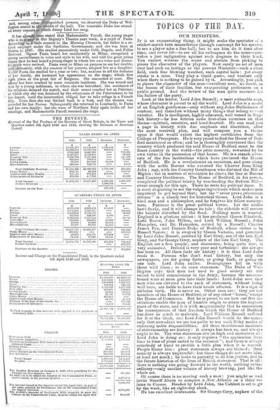stated that Mademoiselle Parodi, the young singer Her Majesty's Theatre
next week, is a pupil of Pasta. Accorchno to ittle memoir in the Morning Chronicle, her father is a re- tired emploid under the Sardinian Government; and she was born at Genoa, in 1 27. She studied successively under Celli, Degola, and Felice Ronconi. , Signor Pasta heard her accidentally at Milan, recognized a strong resemblance in voice and style to his wife, and told the great prima donna that he had heard a youngsinger in-whom- her own voice and drama- t r. spirit were revived. Pasta went to Milan on purpose to see her double; and ultimately, with the consent of her parents, adopted her as a daughter. Under Pasta she studied for a year or two; but, anxious to aid the fortunes of her family, she hastened her appearance on the stage;' which first -t place at the great fair of Bergamo. She succeeded at once. Her allreer has been marked by some romantic incidents. She was wooed and won by a young nobleman, to whom she was betrothed; the resistance of his relations delayed the match, and their assent reached her at Palermo; at which city she was detained by the reluctance of the Palermitans to let r her depart, until the insurrection obliged her to take refuge in a French ship. Even then she was fetched back in a boat, and the theatre was crowded for her Norma. Subsequently she returned to Lombardy, to Pasta and her own family: but the wars of Northern Italy again broke off her marriage, and Mademoiselle Parodi resumed the stage.
It has who is telt


























 Previous page
Previous page